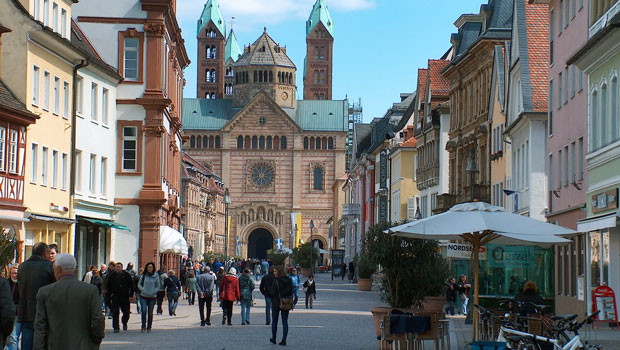German economy nudges higher as sentiment steadies

The German economy strengthened marginally in the first quarter, official data showed on Wednesday.
According to Destatis, Germany’s Federal Statistics Office, GDP rose by 0.2% on last three months of 2021, after being adjusted for price, seasonal and calendar variations. GDP fell by 0.3% in the fourth quarter.
Year-on-year first quarter GDP was ahead 3.8% on a price and calendar-adjusted basis.
It means that Germany has narrowly avoided a recession, despite the impact of the war in Ukraine. A recession is defined as two consecutive quarters of contraction.
The growth was supported by capital investment in machinery and equipment, which rose 2.5%, while investment in construction increased 4.6%, helped by mild weather.
In contrast, foreign trade decreased, with total exports down 2.1% on the previous quarter.
Georg Thiel, president of Destatis, said: "War in Ukraine and the continuing Covid-19 pandemic have intensified existing distortions, including interruptions in supply chains and rising prices.
"Despite difficult framework conditions in the global economy, the Germany economy started 2022 with slight growth."
The GDP data coincided with the latest GfK Consumer Climate Study, which showed that consumer sentiment had steadied in Germany following last month’s record slide.
GfK said that heading into June, the overall index had risen to -26.0 from a revised -26.6, an all-time low, in May.
Both economic and income expectations showed moderate gains, while propensity to buy remained almost unchanged.
Rolf Burkl, GfK consumer expert, said: "Although this means that the consumer climate has improved slightly, consumer sentiment is still at all-time low. Despite further easing of pandemic-related restrictions, the war in Ukraine and especially high inflation are weighing heavily on consumer sentiment."
GfK said consumers still feared a recession, and noted that a sustained turnaround in sentiment depended on successful peace negotiations in Ukraine and a fall in the rate of inflation.
Around 2,000 people were surveyed between 5 and 16 May for the GfK Consumer Climate Study.